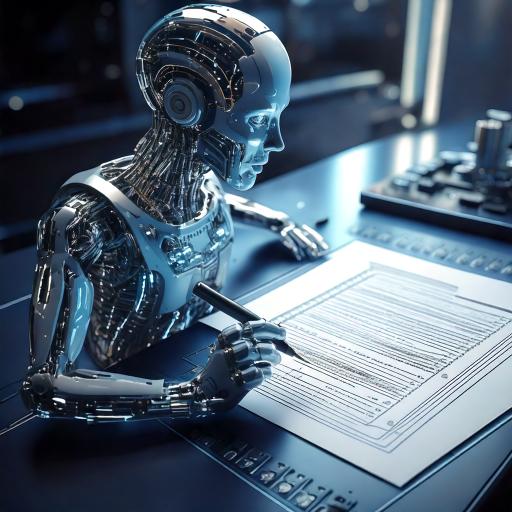Artificial Intelligence (AI) is transforming the legal industry, particularly in contract review and drafting. Businesses and legal professionals are increasingly leveraging AI-powered tools to streamline contract management, reduce errors, and enhance efficiency. However, while AI presents significant opportunities, it also comes with risks that must be carefully managed.
In this article, we explore how AI is reshaping contract drafting and review, the benefits it offers, and the potential pitfalls businesses and legal practitioners should be aware of before relying on it.
The Role of AI in Contract Review & Drafting
AI-powered contract tools use natural language processing (NLP) and machine learning algorithms to analyze, review, and even generate contracts. These tools can:
- Extract key clauses from lengthy contracts in seconds.
- Detect inconsistencies or missing provisions by comparing documents against legal databases.
- Analyze risks based on past litigation or industry standards.
- Automate contract generation using pre-set templates and client-specific data.
- Ensure compliance with jurisdictional laws and regulations.
With these capabilities, AI helps legal teams and businesses accelerate contract processes, allowing them to focus on strategy rather than manual legal review.
Opportunities: The Benefits of AI in Contract Law
1. Speed & Efficiency
Traditional contract review can take hours, if not days, especially for complex agreements. AI reduces the time required by automating document analysis, ensuring faster deal closures.
2. Cost Savings
By automating contract review, businesses can reduce legal costs, allowing law firms to allocate their human resources more effectively while enabling companies to process more contracts at a lower cost.
3. Reduced Human Errors
AI minimizes human oversight by flagging inconsistent language, missing clauses, and ambiguous terms that might be overlooked in manual reviews. This leads to more precise and enforceable contracts.
4. Enhanced Risk Assessment
AI tools can cross-reference contracts with regulatory changes, industry standards, and past cases to highlight potential risks, ensuring compliance and reducing exposure to legal disputes.
5. Data-Driven Contract Drafting
AI learns from vast amounts of contract data to recommend optimal contract structures, standardize clauses, and predict dispute risks based on historical trends.
Risks & Challenges of AI in Legal Contracting
Despite its advantages, AI is not without risks. Businesses and law firms must consider the following challenges:
1. Lack of Contextual Understanding
AI can analyze text but struggles with understanding the nuances of complex legal scenarios. Legal drafting often requires judgment, interpretation, and negotiation—something AI has yet to master.
2. Potential Bias & Inaccuracies
AI models are trained on historical data, meaning they might inherit biases present in past contracts. If not properly trained or updated, AI can generate contracts with outdated or legally questionable clauses.
3. Over-Reliance on Technology
While AI speeds up processes, it should not replace human oversight. Lawyers and business professionals must validate AI-generated contracts to ensure accuracy and relevance to specific legal contexts.
4. Data Privacy & Security Risks
Contracts contain sensitive business and legal information. AI tools that store or process contract data in the cloud may be vulnerable to cyber threats, data breaches, or compliance violations under laws such as GDPR or CCPA.
5. Compliance with Jurisdictional Laws
AI-generated contracts must align with country-specific legal frameworks. Relying on AI without jurisdictional expertise can lead to agreements that are not enforceable in certain regions.
Best Practices for Using AI in Contract Review & Drafting
To maximize AI’s benefits while mitigating risks, businesses and legal teams should:
- Use AI as an assistant, not a replacement. Human expertise should always validate AI-generated contracts.
- Train AI models with high-quality, up-to-date legal data to improve accuracy.
- Ensure compliance with data privacy laws when using AI tools that process sensitive legal information.
- Customize AI contract review tools to align with company-specific needs and industry regulations.
- Regularly audit AI-generated contracts to identify errors, biases, and inconsistencies.
The Future of AI in Contract Law
AI’s role in contract drafting and review will continue to evolve, offering greater efficiency and accuracy. Future advancements may include AI-driven contract negotiation tools, predictive analytics for contract enforcement, and deeper integration with blockchain for smart contracts.
However, while AI will undoubtedly reshape the legal landscape, it will never fully replace human lawyers. The best approach is a hybrid one—leveraging AI for automation while retaining human legal expertise for decision-making and strategy.
Final Thoughts
AI in contract review and drafting presents immense opportunities, but businesses and legal professionals must navigate its risks carefully. By combining AI’s efficiency with human legal insight, organizations can create more precise, legally sound, and enforceable contracts while staying ahead in the evolving digital landscape.
At TheRightContract, we stay at the forefront of legal innovation. Whether you’re looking to streamline contract drafting or ensure compliance, our marketplace connects you with the right legal professionals and cutting-edge contract solutions.
Would you trust AI to draft your contracts? Share your thoughts in the comments below!

